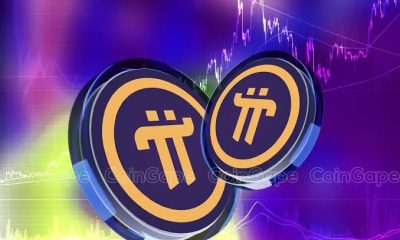Business
South Korea’s Central Bank Rejects Bitcoin As Reserve Asset
By Benjamin Abioye

The Bank of Korea (BOK) has officially turned down a proposal to include Bitcoin in its foreign currency reserves. This decision reflects ongoing concerns about the role of cryptocurrencies in traditional financial systems and highlights the cautious approach South Korea is taking toward digital assets.
Concerns Over Bitcoin’s Stability
The idea of adding Bitcoin to South Korea’s reserves was inspired by international trends, particularly after the United States recently established a Strategic Bitcoin Reserve. However, the BOK has cited two major concerns—Bitcoin’s price volatility and liquidity issues.
For example, Bitcoin’s price has shown extreme fluctuations, swinging between $98,000 and $76,000 in a short period. These unpredictable shifts raise doubts about its reliability as a reserve asset. Additionally, the BOK emphasized that Bitcoin does not meet the International Monetary Fund’s (IMF) reserve asset standards, which require assets to be highly stable, have strong credit ratings, and be easily convertible.
To maintain economic stability, the bank reaffirmed its commitment to traditional financial assets rather than adopting a highly volatile cryptocurrency.
Political Push for Bitcoin Integration
The proposal to incorporate Bitcoin into South Korea’s foreign exchange reserves was led by lawmaker Cha Gyu-geun of the Rebuilding Korea Party. His recommendation came amid growing concerns that South Korea might lag behind global financial trends.
During a seminar on March 6, members of the Democratic Party and financial experts urged the country to take a more proactive stance toward Bitcoin. They argued that digital assets are becoming an essential part of modern finance and that South Korea should not ignore this shift.
Global Adoption vs. South Korea’s Caution
While South Korea has chosen to proceed cautiously, some countries are actively embracing Bitcoin as a reserve asset. The Czech Republic, for example, has announced plans to allocate 5% of its national reserves to Bitcoin to reduce dependence on traditional currencies. Meanwhile, El Salvador has already made Bitcoin legal tender to boost its economy.
However, other major economies, including Japan and the European Central Bank, share South Korea’s concerns. They remain skeptical due to Bitcoin’s volatility and liquidity challenges, which could pose risks to financial stability.
Regulated Crypto Investments on the Horizon
Despite the rejection of Bitcoin as a reserve asset, South Korea is not completely shutting the door on cryptocurrency investments. The Financial Services Commission (FSC) is set to introduce new guidelines by the third quarter of 2025. These rules will allow professional investors and charitable organizations to trade digital assets within a regulated framework.
This regulatory move aims to bring more stability to South Korea’s crypto market, where over 30% of the population actively trades digital assets. By creating clearer investment policies, the government hopes to attract serious investors while keeping financial risks under control.
South Korea’s cautious approach to Bitcoin reflects a broader global debate—should cryptocurrencies be embraced as the future of finance, or do they pose too many risks to economic stability?
Send Us A Press Statement Advertise With Us Contact Us
And For More Nigerian News Visit GWG.NG













